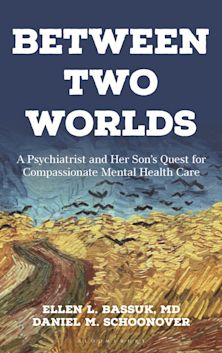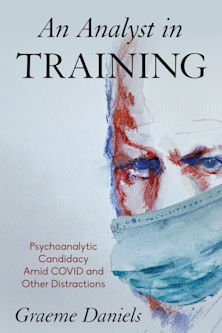Assessment and Intervention with Children, Adolescents, and Adults with Neurocognitive Challenges
A Psychodynamic Perspective
Assessment and Intervention with Children, Adolescents, and Adults with Neurocognitive Challenges
A Psychodynamic Perspective
This product is usually dispatched within 2-4 weeks
- Delivery and returns info
-
Flat rate of $10.00 for shipping anywhere in Australia
Description
Neurodivergent children, adolescents, and adults demonstrate both learning and attention challenges that contribute to academic, social, and workplace failures. The emotional consequences of these disorders can often include lowered self-esteem, pervasive feelings of shame, profound insecurity about academic skills, and a deep sense of vulnerability. This leads many individuals with neurocognitive difficulties to consult with psychotherapists for help in alleviating their psychiatric symptoms. Nechama Sorscher argues that it is therefore essential for clinicians to be mindful of the various types of learning disorders and their impact on the developing psyche while facilitating insight and awareness of these issues. Assessment and Intervention with Children, Adolescents, and Adults with Neurocognitive Challenges: A Psychodynamic Perspective provides an overview of the different types of learning disorders, reviews the literature on common psychological themes found in the psychotherapy of individuals with these disorders, and offers practical suggestions for treatment, as illustrated in case histories. This book discusses how to accurately assess and successfully intervene with children, adolescents, and adults with learning disabilities, attention disorders, and autism spectrum disorder.
Table of Contents
Chapter 2: How To Evaluate Neurocognitive Challenges
Chapter 3: The Emotional Impact of Neurocognitive Challenges
Chapter 4: Accommodations, Modifications and Common Emotional Responses to Assistive Methods
Chapter 5: Understanding the impact of neuropsychological testing on patients with neurocognitive challenges: Integrating test results into the treatment
Chapter 6: Treatment for Patients with Neurocognitive Impairments: An Integrated Approach
Chapter 7: Transference/Countertransference issues in the Assessment and Treatment of Individuals with Neurocognitive Challenges
Chapter 8: The Impact of COVID and remote learning on patients with ADD, LD, and Autism
Chapter 9: Race, Culture and Socioeconomic Status: Factors in diagnosis and intervention with patients with neurocognitive challenges
Chapter 10: Future Directions
Product details
| Published | 27 Jun 2024 |
|---|---|
| Format | Hardback |
| Edition | 1st |
| Extent | 222 |
| ISBN | 9781666921687 |
| Imprint | Lexington Books |
| Illustrations | 21 Tables, 53 Textboxes |
| Dimensions | 237 x 157 mm |
| Series | Psychodynamic Psychotherapy and Assessment in the Twenty-first Century |
| Publisher | Bloomsbury Publishing |
Reviews

ONLINE RESOURCES
Bloomsbury Collections
This book is available on Bloomsbury Collections where your library has access.































